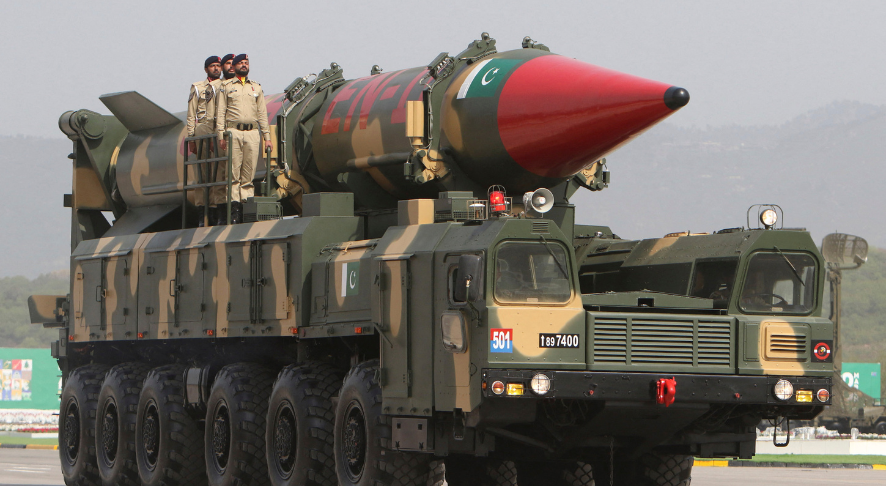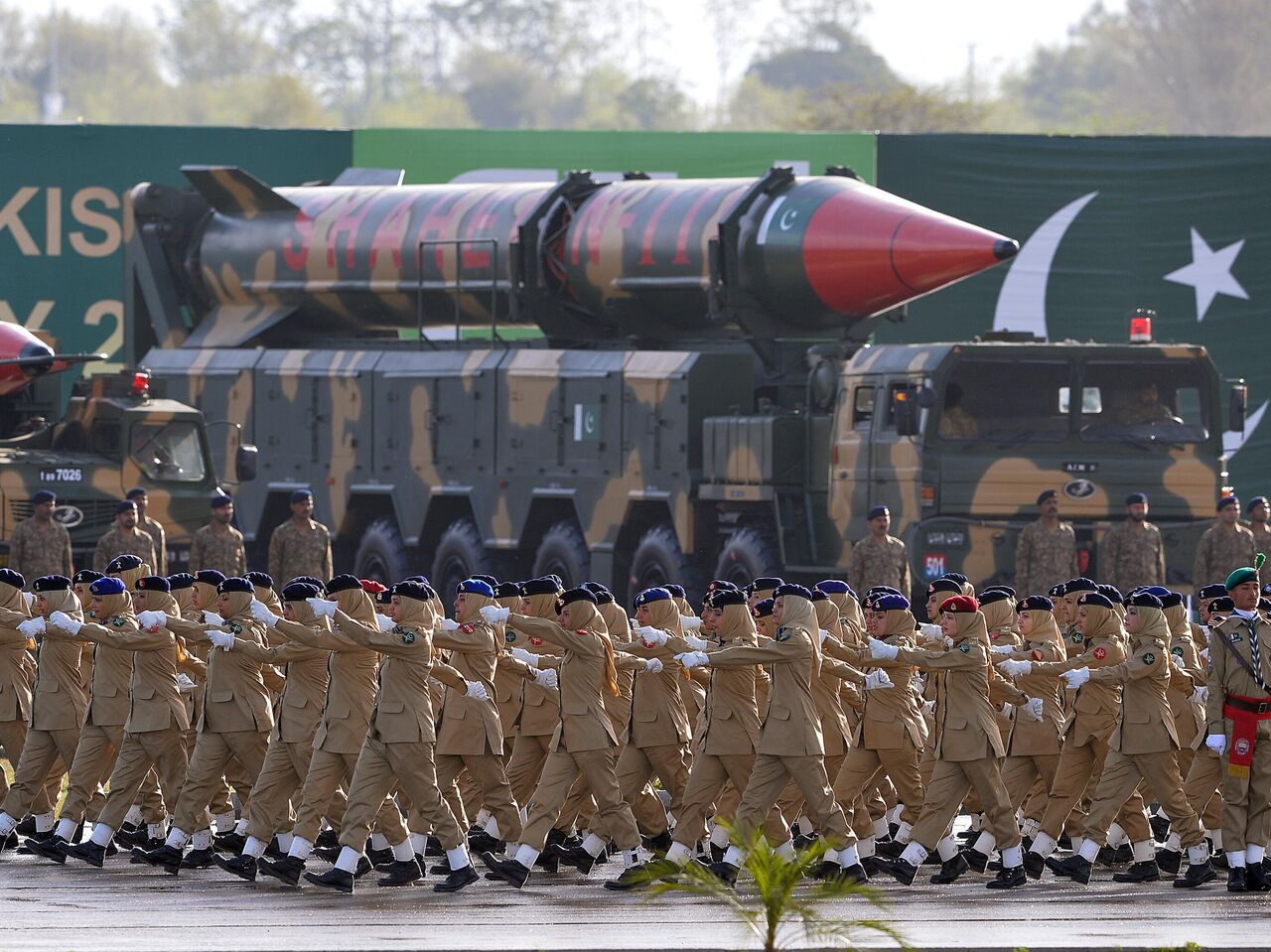U.S. Concerned Over Pakistan’s “Sophisticated” Ballistic Missile Development Program
U.S. Deputy National Security Adviser Jon Finer stated that Pakistan is advancing its missile technology in increasingly "sophisticated" ways and "has the capability to strike targets far beyond South Asia, including the United States."
(DEFENCE SECURITY ASIA) – A senior White House official has described Pakistan as an “emerging threat” to the United States due to its development of long-range ballistic missiles capable of striking targets beyond South Asia, “including the United States.”
U.S. Deputy National Security Adviser Jon Finer stated that Pakistan is advancing its missile technology in increasingly “sophisticated” ways.
“If these trends continue,” Finer warned, “Pakistan will have the capability to strike targets far beyond South Asia, including in the United States.”
“Frankly, it’s hard for us to interpret Pakistan’s actions as anything other than an emerging threat to the United States,” he added.
Two senior administration officials told the media that U.S. concerns about Pakistan’s ballistic missile program stem from the size of the rocket engines being developed by the nuclear-armed South Asian nation.
Finer’s remarks came a day after Washington announced a new round of sanctions targeting Pakistan’s ballistic missile development program, including sanctions against the state-owned defense agency overseeing the initiative.

The United States stated that the move was taken “in light of the continued proliferation threat posed by Pakistan’s long-range missile development.”
Pakistan dismissed the sanctions as “biased” and warned of their potential impact on regional stability, accusing Washington of double standards in its arms policies.
Pakistan’s Foreign Ministry criticized the U.S. for exempting certain countries from licensing requirements for advanced military technology.
“Such double standards and discriminatory practices not only undermine the credibility of non-proliferation regimes but also endanger regional and international peace and security,” it said.
The sanctions are believed to target Pakistan’s National Development Complex (NDC), which is responsible for developing and constructing several types of long-range ballistic missiles.
Among the long-range ballistic missiles developed by the NDC are the “Shaheen III” and “Ababeel.”
The “Shaheen III” is considered one of Pakistan’s most advanced ballistic missiles.
The solid-fueled missile is capable of striking targets with both conventional and nuclear warheads at a range of 2,700 km, making it Pakistan’s longest-range ballistic missile to date.
Pakistan’s military reportedly began developing the “Shaheen” missile in the early 2000s, with the missile entering strategic service in 2014.
The “Shaheen” missile weighs approximately 24,000 kg and can carry a conventional warhead weighing 1,200 kg.
It is a two-stage, solid-fueled missile with inertial and terminal guidance systems, featuring a Circular Error Probable (CEP) of 350 meters.
In 2017, U.S. officials estimated that Pakistan possessed up to 50 “Shaheen-II” and “Shaheen-III” ballistic missiles, though they believed the arsenal could have since doubled.
Meanwhile, the “Ababeel” missile is reportedly capable of carrying Multiple Independently Targetable Re-Entry Vehicles (MIRVs) and is still under development.
In October last year, Pakistan conducted a second test launch of the “Ababeel” medium-range ballistic missile.
Pakistan is the first country in South Asia to conduct test launches of a MIRV-capable ballistic missile, surpassing its neighbor and arch-rival India, which has yet to achieve this milestone in its missile development program.
The “Ababeel” medium-range ballistic missile, equipped with MIRV capabilities, has a range of 2,200 km.

What is MIRV?
MIRV refers to a payload carrying multiple thermonuclear warheads, capable of striking several targets simultaneously.
Currently, only a handful of nations – including Russia, the United States, the United Kingdom, France, and China – possess MIRV-capable ballistic missiles. Israel is also believed to either possess or be developing such technology.
If Pakistan successfully completes the development of the “Ababeel” missile, it will join the small group of nations equipped with MIRV capabilities. – DSA


